STRIVING FOR SUSTAINABILITY
SUSTAINABLE DEVELOPMENT 2023



















NALED offers expert support in achieving optimised solutions, conducting various initiatives and projects in the fields of environmental protection, the use of renewable energy sources and energy efficiency, as well as on healthcare advances
Here we speak with the director of NALED’s Sustainable Development Department, Slobodan Krstović, about the use of natural resources, environmental protection, building communities that are sustainable over the long-term, climate change, the UN’s Sustainable Development Goals, socially responsible companies, measures, strategies and projects that will help us protect and preserve the planet.
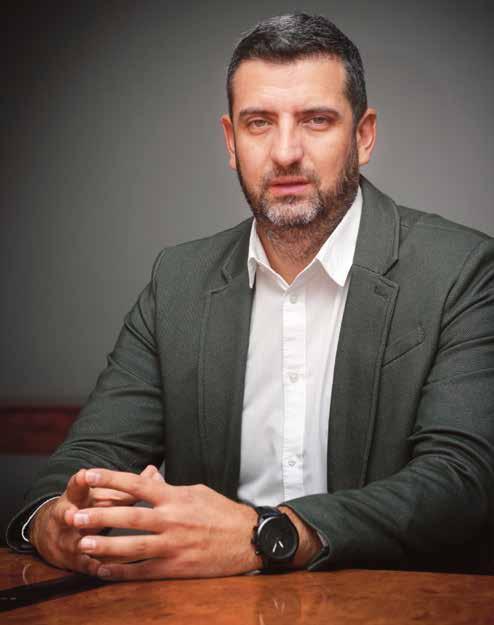
If we take as our starting point the definition of sustainable development as development that satisfies present needs without jeopardising the ability of future generations to satisfy their own needs, a question arises over what we leave behind as a legacy to future generations. How much have we done on this front?
— We are striving to ensure that we don’t leave them with fewer resources than we have today. And here I’m not only referring to the finite resources that we are constantly losing, but also the renewable ones that we are currently placing under great pressure due to the influence of pollution, climate change and global warming. We haven’t done enough, and testifying to this claim is the fact that we entered into a state of “environmental indebtedness” at the beginning of August, i.e., that we consumed what nature needs a year to replenish in just the first seven months of the year.
Through its cooperation with businesses, academic institutions and decisionmakers at the national and local levels, NALED offers expert support in achieving the most optimal solutions that are applicable. Within the scope of our working bodies, we take advantage of the expertise of our members, couched in the context of current events and sustainable development trends, and provide decisionmakers with a balanced and applicable solution.
We have seen increased interest in issues related to the environment over recent years. Have significant strides towards solving such issues been taken?
— The process ahead of us is a long one, which is why it might seem as though no major strides have been achieved, but we must be patient in achieving all the defined goals. Certain progress is evident, for example in terms of the construction of regional waste management centres and wastewater treatment plants, and in terms sewage networks – for which financial resources have been provided from various sources of funding. It is extremely important to build capacities at the local level, not only for managing these fundamental systems, but also for training personnel in a systematic way to deal with other current issues in the field of environmental protection, circular economy, achieving climate neutrality etc.
Serbia is among the signatories of the UN’s Agenda 2030, representing a universal strategy that calls on us to mobilise all resources to achieve the Sustainable Development Goals by 2030. How far away from achieving that are we?
— Progress in meeting such broadly defined sustainable development goals is always dependent on political will the most, but also on financial support for specific solutions and investment in education and raising awareness among citizens. In the domain of environmental protection, the focus is on the circular economy and decarbonisation. The Law on Climate Change has been adopted and the drafting of an environmental protection strategy is underway, while we also have a Circular Economy Development Programme for the first time.
Striving to achieve EU accession by 2030 is now a realistic goal for us; to meet some of the goals by then, and to also ensure
subsequent continuity in the reform process. In the area of environmental protection alone, it is estimated that we need in excess of ten billion euros to meet the applicable standards and build essential infrastructure, with just 5.4 billion euros needed, for example, to resolve the issue of wastewater.
Apart from the 2030 Agenda, there is also the UN’s 2050 Agenda for Sustainable Development. Why is climate change among the biggest challenges today?
— The European Union is exerting efforts to realise the vision of the European Green Deal, according to which the continent should become climate neutral by 2050. Introducing various climate policies that are aligned with the Eu-
How do companies in Serbia conduct their efforts towards achieving the SDGs?
— There are companies in Serbia that represent examples to others and that endeavour to achieve the sustainable development goals. Some of them even innovate their operations before they are legally obliged to do so, by introducing green technology, switching to more acceptable inputs and raw materials, utilising by-products from other production processes and taking an integrated systemic approach to dealing with issues of the pollution that they emit. Ever more companies are accepting responsibility for the environmental damage that they cause, and are implementing preventative measures to support the sustainability of the sys-
ropean Green Deal often threatens the European single market, which is why various mechanisms are being developed with the intention of motivating the EU’s trade partners, including Serbia, to take steps towards reducing their dependence on fossil fuels. It is precisely this dependence that represents the greatest challenge, while - on the other hand - needs are increasing constantly, given that we had reached a world population of eight billion by the end of last year.
Climate change represents a global problem that cannot be solved, nor even observed, in isolation, but which rather requires international cooperation in the fight against climate change, or the coordination of international activities, which represents a challenge in and of itself.
tem. We try to always highlight the best local governments and companies, but also to point out instances when, under the veil of sustainable development, the attribute “green” is assigned to products and services that actually represent “greenwashing”.
Through our activities in the period ahead, we will work with companies directly on the greening of processes and products, but also on raising the importance of non-financial reporting and the use of ESG criteria. This concept is already becoming a reality in which the market position and perception of certain companies is assessed not only on the basis of financial criteria, but also according to environmental impact (E-environment), social aspects (S-social) and management culture (G-governance).
IN THE AREA OF ENVIRONMENTAL PROTECTION ALONE, IT IS ESTIMATED THAT WE NEED IN EXCESS OF TEN BILLION EUROS TO MEET THE APPLICABLE STANDARDS AND BUILD ESSENTIAL INFRASTRUCTURE
What steps should we, as a country and a society, take to ensure that we achieve significant progress towards sustainable development?
— In order to build a community that’s sustainable over the longterm, we need full cooperation between the government, business world, civil society organisations and citizens. This isn’t merely a political manifesto that promises to ensure all citizens have access to drinking water, healthcare, education and specialist training, to reduce poverty and eradicate life on the extremes. These are real problems in Serbia that need to be solved in a systematic way that ensures everyone has equal opportunities to develop and advance, because that’s the only way we can secure the human capacities re-
quired to really deal with sustainable development. Education is extremely important, as is access to information and lifelong learning. Here, for example, the majority of people would say that Serbia is a country rich in water and that there’s no need to worry about water as a resource, but the reality is that we rely a lot on transit waters and are poor when it comes to our domestic autochthonous waters.
Which of the 17 SDGs do you see as being the most important or highest priority for Serbia?
— It is difficult to choose individual segments and goals in isolation from the whole, because the lack of one means that the system will not function and there will be no sustainable development. If it was necessary to single out one specific area, that might be the social segment or the environment, depending on the society’s development level. Of the 17 goals globally, I would single out access to drinking water. It is disheartening that a quarter of the world’s population currently lacks access to clean drinking water, which is a fundamental need. On the other hand, it is often noted that the first goal – the eradication of poverty – is the most important, because it is connected to the achieving of other goals: the provision of food, water, education, healthcare and economic sustainability.
When it comes to Serbia, I’m focused on sustainable cities and communities. Just as we have the ESG criteria that we use, among other things, to evaluate the desirability of a company as an employer, so local communities and what they offer, in addition to attracting investments, will result in them being classed as desirable places to live and work. It is precisely those communities that are energy-independent and provide access to healthy food and water, that are inclusive and tolerant, that will represent havens for people to live and work.
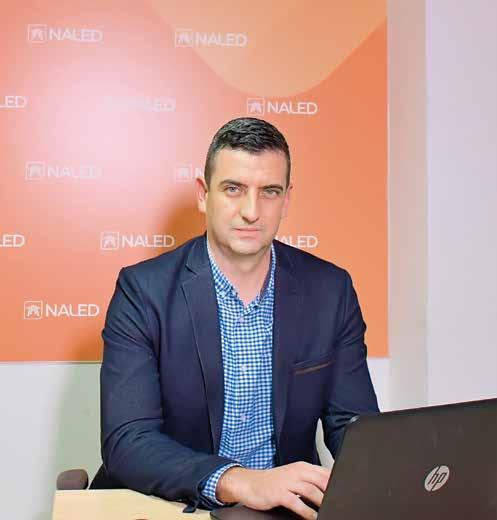
EVER MORE COMPANIES ARE ACCEPTING RESPONSIBILITY FOR THE ENVIRONMENTAL DAMAGE THAT THEY CAUSE, AND ARE IMPLEMENTING MEASURES TO SUPPORT THE SUSTAINABILITY OF THE SYSTEM

Under the organisation of company Novosti, Belgrade played host to a panel debate entitled “Our Sustainable Community”, which addressed the importance of sustainable development and contributions to the achieving of the UN’s Sustainable Development Goals and included the participation of Serbian Mining and Energy Minister Dubravka Đedović Handanović, NIS CEO Kirill Tyurdenev and Čačak Mayor Milun Todorović
a department that demands long-term planning and a lot of time is required for the result to be evident. We have adopted a ten-year plan for investments in energy infrastructure, which envisages investments of 15 billion euros, primarily in renewable energy sources, distribution and transmission networks, and reversible hydropower plants.”
CEO Tyurdenev said that energy transition is nothing new for NIS, but rather represents a path that the company has been taking for years. “Our green agenda is of great importance on this pathwe’ve invested more than 900 million euros since 2009 in environmental projects and business projects that have a positive indirect impact on environmental protection. Improving environmental protection is among our basic priorities and we implement projects with the intention of them contributing not only to our business results, but also to a better ecological picture for Serbia as a whole,” concluded Tyurdenev.
Speaking in the introductory part of the gathering, Slobodan Krstović, director of the Sustainable Development Department of NALED, stated that it is extremely important to consider what we leave behind as a legacy to future generations and that the building of a community that’s sustainable over the long term requires the synergy of numerous social factors.
The discussion placed a special focus on the need to develop human resources and conserve natural resources, but also on improving quality of life for our fellow citizens. Discussions also encompassed ways to make our community more inclusive and safer, and ways of enabling long-term sustainable development in challenging times. The issues in
focus also included that of energy transitioning to achieve the SDGs.
Minister Đedović Handanović noted that investments in energy must be a priority over the next 20 years. “We have three goals: the first is energy independence, then securing the lowest price for citizens and the economy, and the third is for us to secure the supplies and operations of our energy system. Energy is
Mayor Todorović said that stability is of great importance to citizens. “Alongside healthy and good quality air, good, healthy and tasty food, and high-quality water, people want stability in all of these elements: healthy air, power supply, water supply. The fact is that there is ever more consumption in Čačak due to industrial growth. In order for citizens to have better quality of life, we need to strengthen the economy and reinforce the infrastructure, which we are working on intensively together with the Government and relevant ministries. My personal recommendation is for local government to always be alongside its state, ministries and leadership in order for citizens to have as many benefits as possible,” concluded Todorović.
The panel also included discussion of the importance of community education as an important segment of sustainability.
NIS is among Serbia’s pioneers in the field of sustainable development reporting and in June published on its corporate website its 2022 Sustainable Development Report, which represents the company’s 13th consecutive verified report. According to this document, NIS provides a strong contribution, through its operations, to the basic principles of sustainable development: economic progress, the development of human resources, environmental protection and community support. In the field of sustainable development, NIS is led by the UN’s global goals, and in this latest report it acknowledges 12 of the 17 goals that it contributes to achieving with its activities.

In a world where 46% of consumers are looking to brands to take the lead on creating sustainable change, greenwashing has emerged as a deceptive tactic used by some businesses to appear more eco-friendly than they truly are. The European Union is set to introduce stringent regulations to combat greenwashing, with potential penalties of up to 4% of annual revenue for making misleading environmental claims
NJEGOVAN ESG & Sustainability Leader, Risk Advisory, Deloitte Serbia

The EU has Green Claims Directive, on which the EU reached a provisional political agreement, has the potential to become a transformative piece of ESG legislation. If adopted, it will mandate rigorous environmental footprint assessments for both products and companies. Life cycle environmental performance will have to be measured and transparently communicated for valid green claims. Environmental labels will face increased scrutiny, requiring testing, third-party verification, and regular monitoring. Crucially, it would extend its reach beyond EU borders, applying to companies outside the EU making claims for goods and services intended for EU consumers.
To meet these stringent requirements, businesses will have to establish robust environmental claims management frameworks, encompassing data gathering, life cycle assessments, and transparent messaging. External verification by accredited third parties will be necessary. Challenges may arise, from knowledge gaps to increased costs, but there are potential benefits, including reduced reputational and liability risks and improved stakeholder relationships.
The Green Claims Directive represents a turning point in the fight against greenwashing, demanding greater accountability and transparency from businesses. Companies must prepare to adapt and ensure their environmental claims align with these stringent regulations to build a sustainable and trustworthy future to all. It’s time to unmask greenwashing and pave the way for genuine sustainability.

PPP Investment has spent many years dealing with development of public-private partnership (PPP) projects in Serbia, providing municipalities with support in the form of high-quality and timely solutions in energy efficiency, public bus passenger transportation, road maintenance, zoohygiene etc.
jects. We are thus striving to bring the UN’s Sustainable Development Goals closer to municipalities.
With the right governance structures and a commitment to the public interest, PPPs have the potential to shape a brighter future for all, where innovation, efficiency and social impact go hand-in-hand.
How do PPPs contribute to sustainable development?
— PPP projects increase access to essential services and reduce social inequality, improve economic impacts and fiscal sustainability, enable environmental protection and resilience, promote the further development of projects and the standardisation of documents,
One of the significant outcomes defined by PIERS is Replicability. This is an element for which Serbia stands out from the other countries of the region, because it has created a replicable model for PPP investments. This “outcome” provides both public and private partners with better predictability of preparation and project implementation, enabling foresight on many things, especially risks and costs, based on experience possessed.
You have this year received international recognition for your projects. What exactly is this about? We were invited to present two projects of our companies at the PPP
that the public lighting reconstruction project in Zaječar received special commendation from the UNECE for compliance with the SDGs and circular economy principles.
Another prestigious event, 4GAMECHANGERS, was held in Vienna and I was invited to join other distinguished panellists to discuss how we implement tech solutions in our projects and how that is shaping our society.
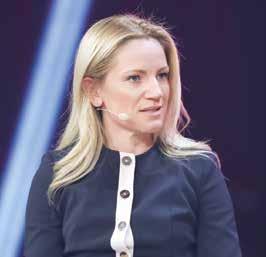
What characterises the projects you prepare?
— All the projects that we develop meet the criteria for public interest as defined by the Law on PPP and identified through “value for money” methodology. However, we have also broadened this approach and our projects are now harmonised with the SDGs, which we will be proven through the “value for people” and “value for the planet” methodology created by the UNECE.
and involve all stakeholders in project implementation.
When we talk about sustainable development, we can’t help but mention the “PPP and Infrastructure Evaluation and Rating System (PIERS)” document that was adopted by the United Nations Economic Commission for Europe and that we have started to apply extensively during the preparation of our pro-
Forum in Athens, organised by the UNECE, because those projects were recognised for their contribution to sustainable development. One is the PPP project for public passenger transport in Bor, prepared by PPP Investment, and the other is a PPP project for the reconstruction of public lighting in Zaječar, implemented by Smart Energy Investment. We are particularly proud
By combining the strengths of the public and private sectors, these collaborations transform infrastructure, apply new technologies, increase economic growth, address social challenges and promote sustainable development. With the right governance structures and a commitment to the public interest, PPPs have the potential to shape a brighter future for all, where innovation, efficiency and social impact go hand-in-hand.
OUR PROJECTS ARE NOW HARMONIZED WITH THE SDGs, WHICH IS PROVEN THROUGH THE "VALUE FOR PEOPLE" AND "VALUE FOR THE PLANET" METHODOLOGY CREATED BY UNECE
Ecology is becoming increasingly important for large companies. As a relatively new brand, Yettel has already distinguished itself in Serbia for its contribution to environmental protection and customer engagement
as a leading mobile operator, have taken that role seriously.
The first 100% green network in Serbia is determined to tackle various environmental issues, especially when the company receives positive feedback from customers. That’s why Yettel has to date recycled over 560,000 devices, 234 tons of plastic and 112 tons of paper.
For Yettel, environmental protection isn’t a mere legal obligation or fad, but an integral part of every sphere of your business. Are you looking to use your influence to drive positive change?

— Absolutely. For us, environmental and social responsibility are part of our DNA. It is how we think and work across all aspects of our business. Last year, we became the first 100% green network, as we now use only electricity from renewable sources for our base stations. In addition, green energy also powers 31 Yettel stores.
It was over ten years ago that we replaced plastic bags with paper in shops. In 2022, we abolished the use of plastic cups in the HQ and regional centres, resulting in our employees contributing to reducing the amount of plastic waste by about 22,000 plastic cups.
Large companies have the power to initiate positive changes, and we,
Yettel always aims to include customers and partners in its environmental efforts. How do people respond to them, especially the device recycling programme?
— I must say that their reaction exceeded our expectations! With our customers, we’ve recycled over 560 thousand devices over the past two years. Approximately 13 kg of gold, 8 tons of copper, 184 kg of silver, and 7 kg of palladium have been collected and returned to use. The great response from our customers demonstrates that people are becoming increasingly environmentally conscious and eager to participate in preserving the environment when
issues, especially when we see the positive feedback from customers.
A year ago, we launched the Eco Bonus digital service, to tackle the problem of plastic and paper, on top of everything else we do as a company. By activating Eco Bonus, the customer chooses to have 4.6 kg of plastic and 2.2 kg of paper/cardboard waste recycled on their behalf, which is the amount of waste generated monthly by the average resident of Serbia. This amount of waste isn’t typically included in Serbia’s quotas or those of national recyclers - we insisted that Eco Bonus bring additional amounts, which are to be recycled in Serbia, so it really makes a difference. Over 234
provided with a simple solution. With their help, we are confident that our goal of recycling a million devices by 2025 is pretty achievable.
In addition to e-waste, plastic and paper waste also pose a major problem. How can a telecommunications company tackle that challenge?
— If there is a will, there is a way, and we definitely have a strong will to tackle different environmental
tons of plastic and 112 tons of paper have so far been recycled.
In addition to the fantastic responses of our customers, I am very proud to say that our sustainability efforts were also recognised in the business society. At the recent Digital Awards 2023 conference, Yettel received the “Social Responsibility Leader” acknowledgment for our work on improving society and the environment through our business activities.
YETTEL RECEIVED THE “SOCIAL RESPONSIBILITY LEADER” ACKNOWLEDGMENT FOR OUR WORK ON IMPROVING SOCIETY AND THE ENVIRONMENT THROUGH OUR BUSINESS ACTIVITIES
Apatin Brewery has presented its most significant results achieved in the domain of sustainability over the past year, published in its annual sustainability report entitled: “We Gave Our Sustainable Word“. The initiatives that Apatin Brewery has continued to implement with the aim of ensuring the sustainability of its business encompass energy efficiency, cogeneration, improved management of water resources and packaging waste recycling, as well as promoting responsible consumption of alcohol
At the same time, all results achieved by member breweries of the Molson Coors Group are highlighted in the global report “Our Imprint Report” for 2022, which was published in July and places an emphasis on progress achieved in the scope of the strategy aimed at caring for the people and the planet.
“Considering the increasing urgency of global challenges in the area of the
environment, we are setting ever more ambitious goals when it comes to placing our seal on water, climate and packaging. Water is crucial to our production process and we devote great attention to ensuring the efficient use of this precious natural resource. We have achieved outstanding success with the constructing of our own wastewater treatment plant – following use in our production processes, we return clean water to nature,
producing green energy as part of the entire process. When it comes to energy use, we are oriented towards constantly improving energy efficiency by reducing and optimising our consumption of thermal energy, electricity and water,” explains Apatin Brewery General Manager Igor Vukašinović.
Summarising the results achieved over the previous period, Apatin Brewery can boast of having reduced its energy consumption, through rational use, by as much as 22% over the past five years. This brewery also processes all wastewater as a by-product, with this process creating biogas that is used to generate electricity and thermal energy using a cogeneration plant, representing an excellent example of a circular economy. When it comes to CO2 production, Apatin Brewery is among the best breweries in the Molson Coors Group – as most of the CO2 consumed in production processes is itself produced as part of the beer fermentation process.
Apatin Brewery has remained dedicated to the “When I drink, I don’t drive” campaign for 17 years already. In partnership with the Serbian Traffic Police Administration and the Agency for Traffic Safety, the brewery promotes responsible alcohol consumption and appeals for traffic safety among its consumers.
In collaborating with partners under the scope of the multiyear project “You Recycle Too”, Apatin Brewery directs the attention of the public towards the importance of recycling and the proper disposal of packaging waste.
Among the key values of Apatin Brewery is the notion that people are always its first priority. It considers support for families, or striking the right balance between private and professional life, as being extremely important, which is why this brewery is a holder of the prestigious Family Friendly certificate, and is actually the first company in Serbia’s consumer goods sector to receive this certification. It has also introduced new benefits for colleagues over the past year, in an attempt to ensure employees can enjoy benefits that will enable them to maintain a positive balance between their work and family life.

The complete Sustainability Report is available on the Apatin Brewery website.
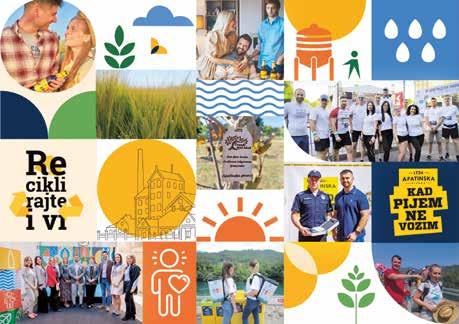
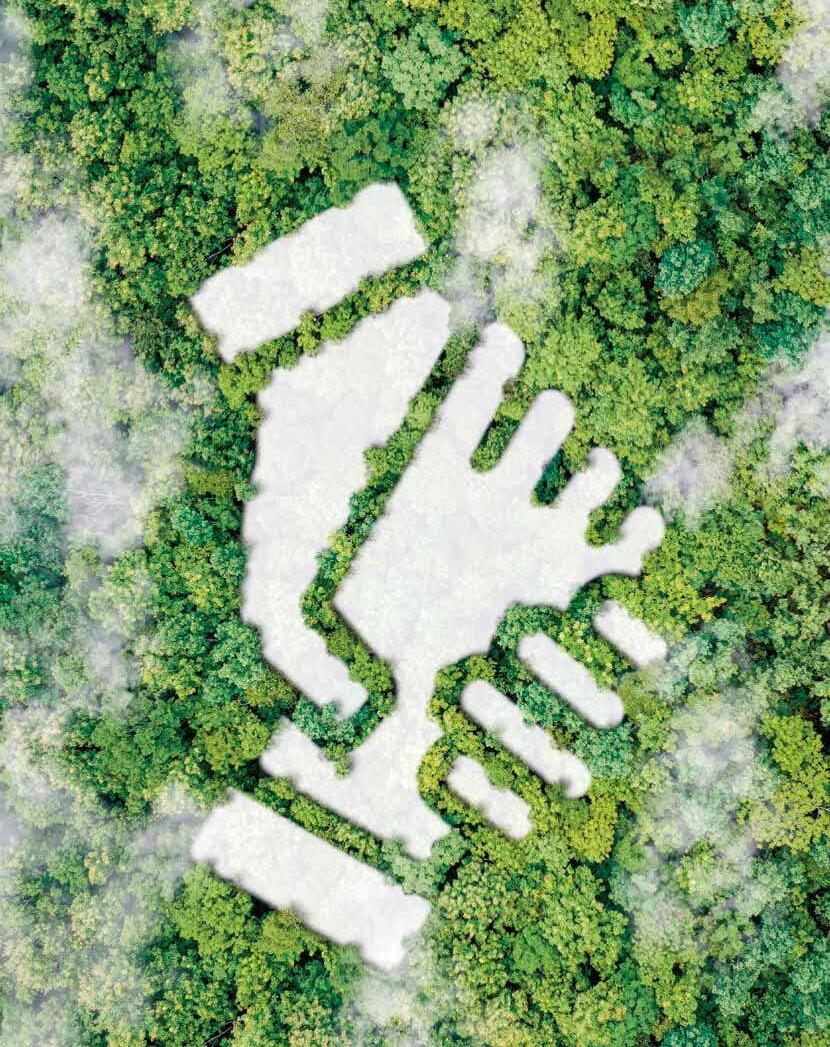
“There must be a better way to make the things we want, a way that doesn’t spoil the sky, or the rain or the land”
Paul McCartney
Kicking off the UN General Assembly (UNGA) High-level Week, the SDG Summit adopted a political declaration reaffirming Member States’ continued resolve and shared commitment to the 2030 Agenda for Sustainable Development and its SDGs. The declaration highlights progress made and gaps and challenges that remain, and issues a call to action to turn our world towards 2030

Every four years, the High-level Political Forum on Sustainable Development (HLPF) convenes twice: under the auspices of the UN Economic and Social Council (ECOSOC) in July; and as the SDG Summit at the level of Heads of State and Government under the auspices of the UNGA in September. When the HLPF convenes twice in the same year,
the Forum adopts “only one negotiated political declaration, covering the different and complementary functions of both sessions of the forum.”
The 2023 Summit was the second meeting of the HLPF to convene under the auspices of the UNGA since the 2030 Agenda and its 17 SDGs were adopted in 2015. It marked the half-way point to the deadline for achieving the Goals, seeking to provide renewed impetus for accelerated action.
Negotiations on the political declaration had been co-facilitated over the course of several months by Qatar and Ireland. Earlier this month, the co-facilitators reported to the UNGA President that the “broadest possible agreement” on the political declaration had been reached.
The Earth Negotiations Bulletin (ENB) reports that there was “a notable sigh of relief” when the declaration was adopted without objections during the opening segment of the SDG Summit. However, some felt this was a reflection of “how low the bar is in terms of expectations.” An observer pointed to the absence of the Heads of State of the five permanent members of the UN Security Council. Delegates forwarded the political declaration (A/HLPF/2023/L.1) to the UNGA, recommending it be endorsed.
Ahead of the SDG Summit, UN Secretary-General António Guterres urged world leaders to bring forward national and global commitments to drive SDG transformation. Representing another outcome of the Summit, these commitments will be registered on the SDG Summit Acceleration and Accountability Platform. The Secretary-General encouraged Member States to report on their implementation in the context of the voluntary national review (VNR) process.
The SDG Summit was preceded by an SDG Action Weekend, which served as a platform for stakeholder engagement to maximise the impact of the Summit.
Other major events taking place during the 2023 UNGA High-level Week included the Climate Ambition Summit, high-level meetings on health and financing for development (FfD), and a preparatory ministerial meeting for the 2024 Summit of the Future.
The Summit also featured a fireside chat on what it will take to keep the SDG promise, and six leaders’ dialogues on:
• scaling up actions on key transitions to accelerate SDG progress;
• building resilience and leaving no one behind;
• applying science, technology, innovation, and data for transformative action;
• strengthening integrated policies and public institutions for achieving the SDGs;
• strengthening the multilateral system for enhanced support, cooperation, follow-up, and review; and
• mobilizing finance and investments and the means of implementation for SDG achievement.

During closing, UN Under-SecretaryGeneral for Economic and Social Affairs Li Junhua noted convergence on:
• building resilience to address the existential threat of climate change;
• expanding social protection to leave no one behind;
• localizing the SDGs in conflictafflicted and fragile states;
• pursuing transformative action through science, technology, and innovation;
• leveraging digitalization to speed up progress on the SDGs;
• strengthening integrated policies and mainstreaming SDG implementation at the national level;
• renewing multilateralism as an imperative for effective implementation of the 2030 Agenda;
• mobilizing finance and investment, including through the SDG Stimulus, climate finance, debt relief, and a reform of the international finance architecture; and
• going beyond Gross Domestic Product (GDP), including through considering the multidimensional vulnerability index.

“There is no economic imperative that will condemn us to deplete our vital resource base, but neither is there an invisible hand that will prevent us from doing so”
Jeffrey Sachs